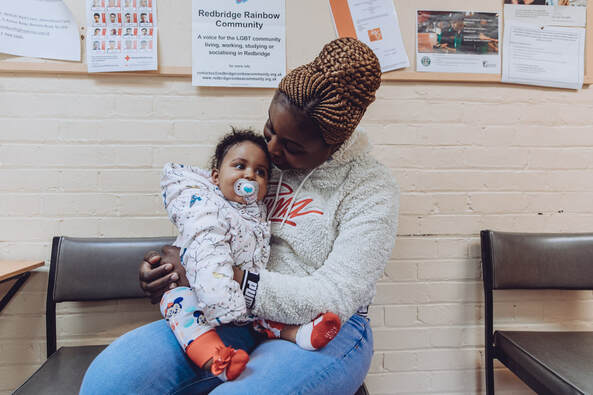|
20/4/2022 'Should we be exiled to an unsafe country where we have no ties, simply because we want to make a better life for us and our families in the UK, free from persecution?' RAMFEL and our clients’ response to the RWANDA SchemeRead Now
Many of us are feeling shocked and disgusted after the news emerged last week that the British government plans to send thousands of asylum seekers and refugees arriving in this country on a one-way journey to Rwanda. This scheme is the result of a $156m deal between Priti Patel and the Rwandan government. Patel claimed that critics of the scheme have no alternative solutions to propose that would stop the people-smuggling trade. This is patently untrue: charities, organisations and individuals have suggested humane ways to undermine exploitative trafficking, both before and in the wake of the Rwanda announcement. In this blog, however, we would simply like to discuss the reasons why the scheme has such huge potential to harm human beings like our clients, and to share some stories and responses from people we work with.
That the UK may adopt ‘offshore detention’ for migrants has been a sinister threat since even before the Nationality and Borders Bill started its journey through parliament. We know from Australia's experience with offshore detention that it leads to sexual abuse of women and children, harms people's mental health to the point of self-harm and suicide and leaves refugees in limbo for years. Like Australia's, the UK’s plan is not only deeply harmful on a human level but grossly expensive, with estimates putting the cost at £1.44bn a year. Keeping arrivals in the UK and simply reducing the worsening wait-times on asylum claims and allowing asylum seekers to work whilst awaiting a decision would lower costs and benefit the economy: instead, the aim seems to be both as inhumane and as expensive as possible. We know from the response to Ukraine that the British public are generous towards those fleeing war and torture, and we already have a network of charities experienced at supporting asylum seekers in the community. Rather than build on this, the government is pursuing a reckless strategy to grab headlines and distract from its own current bad PR over the lockdown parties. Offshoring is likely to prove highly ineffective even on its own terms. Between 2014 and 2017 Israel ran a similar scheme with Rwanda as well as Uganda, and the vast majority of those who were sent to these countries found themselves destitute and at the mercy of under-resourced provision. Most left Africa as soon as possible and many ended up escaping to Europe – often with the exploitative ‘help’ of people-smugglers. The choice of Rwanda specifically also sparks concern. The UK itself criticised Rwanda’s human rights record as recently as last year, particularly its restrictions on media freedom and civil society: migrants sent to Rwanda from the UK could find themselves cut off from specialist organisations who could support and advocate for them, and thanks to tightly controlled national media conditions this could go unreported and abuses unchallenged. At the UN last year, the UK also raised allegations of torture, disappearances and extra-judicial killings in Rwanda. Yet in full knowledge of this the British government is planning to send this nation some of the world’s most vulnerable and oppressed individuals: not only a cruel action in itself, but one giving the green light to further cruelty out of sight and out of mind. The primary targets of the scheme will allegedly be ‘single men’ who have risked their lives to arrive in the UK via irregular methods such as small boats and lorries; the terms of the Memorandum of Understanding crucially though do not restrict this scheme to men only, suggesting a slippery slope towards women and children is very much on the minds of the drafters. Our government though continues to demonise in particular young male refugees, disregarding the fact that this group often face the worst danger in their home countries and have no option but to flee. Some men also go on ahead, hoping to find a safe place where they can be joined by their family. Worryingly, if a male refugee had travelled to the UK ahead of his family members, he would very possibly be classified as a ‘single male’ and flown to Rwanda. If permitted to remain there, his family would presumably be expected to join him there, or face permanent separation. The scheme would also not exclude victims of modern slavery, despite the UK having recently condemned Rwanda’s failure to protect survivors of trafficking. This omission suggests that the government’s talk on becoming a leading nation in the tackling and ending of slavery and trafficking is just that: talk, which can easily be disregarded when deemed politically convenient. Yet again, the government is predicating its hostility towards migrants on the claim that so-called ‘safe and legal routes’ for seeking asylum in the UK exist and are accessible. We know that this is not the case. Time and again men, women and children have to resort to the danger and trauma of small boat and lorry journeys because they simply cannot get non-existent visas. Ukrainians have been treated with more humanity than migrants from non-European countries, and we know from having lived in the time of Syria and Ukraine that if refugees have access to safe routes, they use them. If the government is serious about tackling people smuggling, they would create more safe routes to the UK, starting by expanding the scope of existing family reunion provisions so that it is not restricted solely to pre-flight spouses and minor children. We see daily how refugees, such as RAMFEL client Yasmin, are prevented from bringing their loved ones to join them and feel they have no option but to seek alternative passage. The government itself has also conceded that it has no idea whether this plan will be cost effective. They insist though that if refugees believe they will get sent to Rwanda, then the so-called ‘pull factor’ of coming to the UK will be removed. This is a favourite line of the government, but is not supported by any evidence, and in fact the available research shows that cultural, linguistic and familial ties are the reasons refugees seek to come to the UK. In fact, the head of the Home Office has even conceded there is insufficient evidence to show that this policy will deter UK arrivals, suggesting the government body charged with implementing the plan does not believe it will achieve its stated aim. One of our clients, Hassan*, a refugee who has been battling to bring his wife and children to the UK, shared his thoughts on the new developments: ‘You have to understand that people don’t risk the journey through the sea for pleasure, it’s because back home you are facing death from all sides so you have to risk your life to find safety. If the UK government will not give my wife and children or brothers and sisters a visa to join me in the UK, and I know they are suffering in the way I suffered back home, you have no choice but to find other ways to get here. The only thing you want is for your family to be safe – I think this is all anyone wants – and this makes you do impossible things. Should we be exiled to an unsafe country where we have no ties, simply because we want to make a better life for us and our families in the UK, free from persecution?’ He added: ‘Everyone has a right to live in peace and be secure. I know that not long ago Rwanda’s human rights record was criticised by the UK. Is it safe to send refugees there, or does the UK government not care and is just using us as part of a political game and to scare people?’ The plans are terrifying to those in the UK who fear they may become targets for the scheme. Yesterday another one of our clients – an 18-year-old who arrived here in January – told a RAMFEL caseworker that he has been driven by the Rwanda development to contemplate suicide. It was striking to hear him speak like this, as in the short time he has been in the UK, after a hugely traumatic journey to the country, we have been amazed at how quickly he has developed ties, forming a friendship group, enrolling in college and rapidly improving his English. If learning of the UK’s plan causes such damage, one shudders to think how much those actually removed to Rwanda will suffer. Patel’s and Johnson’s idea shows a callous disregard for human life and wellbeing. Despite its rhetoric on Ukraine, the government has now shown its true colours when it comes to welcoming refugees. This has to galvanise us to continue in the long and disheartening fight against the ‘anti-refugee bill’ and we must resist this plan and oppose the offshoring of refugees. *Names have been changed to protect identities. |
Details
Archives
July 2024
Categories |


 RSS Feed
RSS Feed
